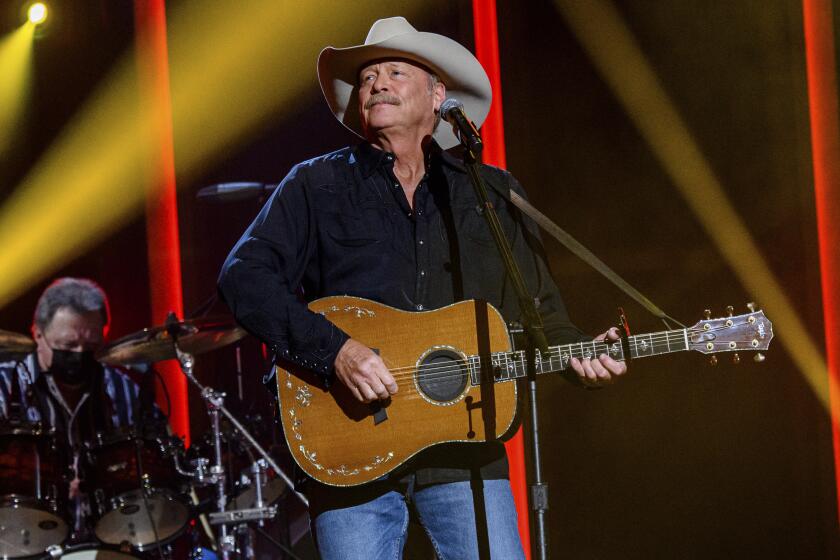Jazz Review : Many Moods of James Williams
- Share via
SEAL BEACH — Pianist James Williams may be one of the highest-profile pianists on the New York scene, but he had a hard time gaining respect from a Southern California crowd Tuesday at Spaghettini.
Don’t blame Williams. His smashing performance with bassist Richard Reid showed why he is one of the top-ranking keyboardists of the generation of jazz musicians who are too mature to be classified as young lions, yet not nearly old enough for living-legend status.
Over the chatter and giggles of some unruly patrons, Williams delivered an involved, intelligent first set that moved easily through a variety of moods and styles, often within the same tune.
Those who came to hear the music were rewarded with Williams’ fine sense of detail and his captivating sense of narrative. And despite the smart nature of his play, there was nothing cold or distant about it. Instead, Williams seduced listeners with deeply felt soul and gospel touches at different times during his improvisations, a reflection of his Memphis roots.
During Antonio Carlos Jobim’s “Wave,” he extracted a host of variations from the familiar theme, wending through blues, boogie and samba rhythms, climbing up the scale in intense, dissonant fashion before closing his solo with warm phrases rich with chords.
He gave Billy Strayhorn’s “Lush Life” distinguished treatment, opening with shifting lines that recalled Debussy’s “La Mer,” presenting the theme in particularly melancholy fashion and ending with a beautifully placed quote from “Dance of the Siamese Children” from “The King and I.”
Williams is a master at inserting lines from other tunes into his work. The Rodgers and Hart chestnut “If I Could Write a Book” saw Ellington’s “Rockin’ in Rhythm” surface at one point during his improv and, later, hints of “Mack the Knife.”
These references were never made casually or at the expense of the rhythmic pattern. Instead they melded into the flow, adding depth and color to an already colorful presentation.
Bassist Reid, who’s known Williams since the mid-’70s, when both played in Boston with drummer Alan Dawson, stood as a second voice, bringing his own sense of development and story line to the proceedings. Left to play alone, he worked in a melodic, often inquisitive style that featured dance-like figures and fast-paced runs up and down the neck of his upright.
The two were especially agile on Oscar Pettiford’s be-bop-paced “Bohemia After Dark.” Williams, relying mainly on his right hand, wove seamless, streaming lines against Reid’s hellbent walk. Williams dropped a bit of “Caravan” into his solo, and its final note was immediately echoed in strong fashion by the bassist.
The only thing detracting from the show was the constant din from the back of the bar. If Spaghettini wants to continue presenting musicians of Williams’ caliber, they should consider having someone introduce the performers as a way of focusing the audience’s attention. That might be coupled with a gentle suggestion to those in the back of the room to keep their conversations to a civil level. Also, a few more seats up front, near the band, would be appropriate, so those there to hear the music can get close to it, rather than standing back with the party crowd.
Such distractions notwithstanding, seeing Williams in such intimate and comfortable surroundings was a rare treat indeed.
More to Read
The biggest entertainment stories
Get our big stories about Hollywood, film, television, music, arts, culture and more right in your inbox as soon as they publish.
You may occasionally receive promotional content from the Los Angeles Times.










